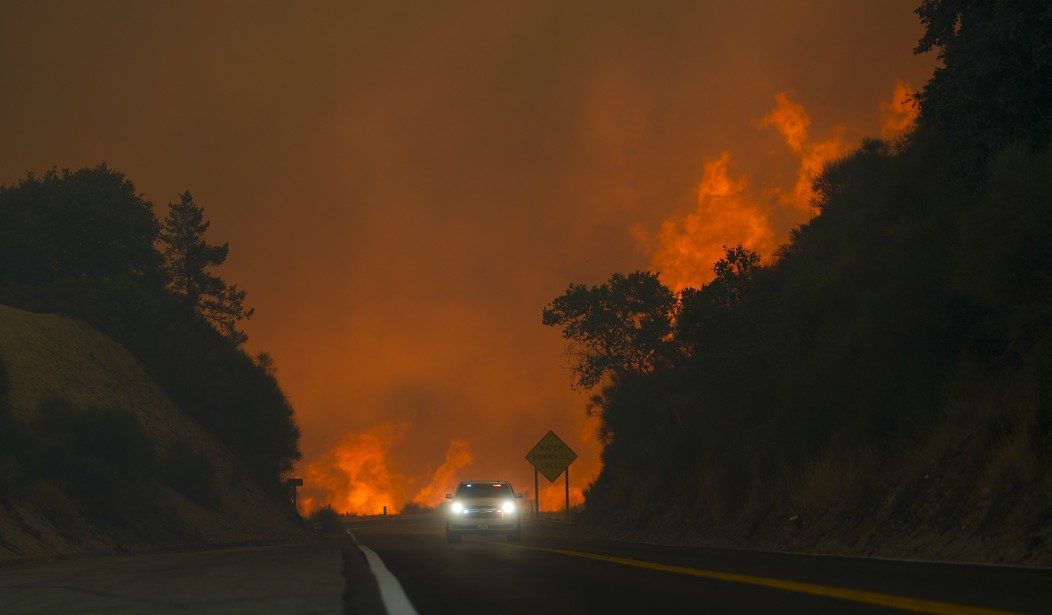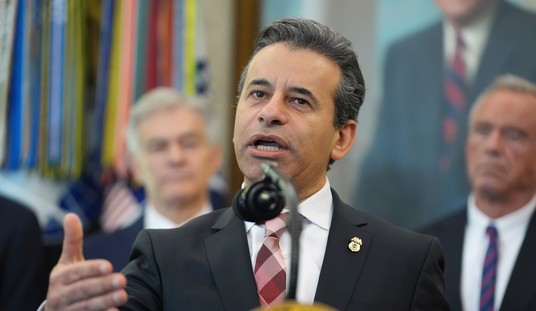The California wildfires are going to end up being the most expensive natural disaster in American history. It's going to be made worse because the insurance industry is in the process of falling apart.
"As risks from illness and old age to natural and financial disaster grow, so does Americans’ resistance to paying to insure against them," writes Greg Ip in the Wall Street Journal.
JP Morgan estimates that the wildfires have caused more than $50 billion in damages, of which only $20 billion was insured. State regulators have prevented insurance companies from charging premiums that would adequately cover the risk associated with living in Southern California. The premiums do not cover the real cost of rising property values, construction, and wildfire risk. Insurance companies simply threw in the towel and decided not to cover anyone, regardless of risk factors.
Never fear, though. Democrats in California created a state-run alternative called "Fair Plan," which, as you might expect, is already a disaster. The plan "has tripled since 2020 to $458 billion. It has only $2.5 billion in reinsurance and $200 million in cash," reports WSJ.
When the plan runs out of money, it can tap other insurance companies to be passed on, in part, to policyholders. California has socialized the cost of disaster.
Is that a good thing?
“What we are seeing is a real disconnect,” said Carolyn Kousky, an economist specializing in risk. “There are opposing views on insurance: Is it a private market good, or is it social protection, to make sure everyone has the resources to recover from disaster?”
Insurance is whatever the government says it is.
"Risk pooling" is an essential element in a private insurance market. A company will spread the risk through the combined premiums of the community to cover losses if a member suffers a tragedy. Actuaries can figure out the best way to spread that risk throughout the pool and statistically find the optimum premium that covers members adequately and makes the company a profit.
Another feature of private insurance is actuarial rate-making, that is, calibrating premiums to the customer’s risk. That’s to prevent “adverse selection,” in which only the riskiest people buy insurance, and moral hazard—the tendency to encourage risk by undercharging for it.
But some activities or individuals are so risky they could never obtain, or afford, private insurance. That’s when risk gets socialized. The federal government’s expansion since the 1930s has largely been through the provision of insurance: Social Security, unemployment insurance, health insurance for the elderly and poor, deposit, mortgage, and flood insurance and, after Sept. 11, 2001, terrorism insurance. Not for nothing is the federal government often called an insurance company with an army.
This is why Obamacare is not an insurance program. If it were, people with "pre-existing conditions" and other risks would pay more for insurance (or not be insured at all) than someone who doesn't present those risks. Obamacare is a government benefit and as such, plays by entirely different rules than ordinary health insurance.
The California wildfires, like all natural disasters, present enormous problems for insurance companies because the claims are made virtually at the same time. It's why government backstops for private insurance companies are going to become more common as natural disasters become more expensive because of overbuilding and construction in disaster zones.
Unfortunately, it's not just the states who will bear the future costs of disaster insurance.
Taxpayers nationwide are also on the hook. Since 2020, Congress has appropriated an average of $46 billion for disaster relief, triple the average of the prior decade (in constant 2023 dollars). Late last year, Congress rushed through $100 billion in aid for disasters including hurricanes Helene and Milton.
Socializing risk weakens one of the main benefits of insurance: Encouraging the insured to mitigate their risk so as to reduce premiums. Without that price signal, it usually takes direct intervention to modify behavior. After being bailed out in 2008-09, banks have had to submit to far more stringent safety and soundness rules.
Something similar may happen with insuring natural disasters. If taxpayers are going to be forced to pay for hurricanes, earthquakes, and wildfire damage, the government should be able to dictate how homes are built and where they're located.










